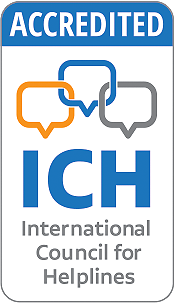It’s A WRAP
Veterans Utilize Wellness Recovery Action Plan
By Stephanie Sabetta, MHANJ Public Relations Specialist
Team above Self, Dedication to the Mission; these familiar phrases evoke the brave men and women who have served our nation by joining the military. As one of the premiere mental health organizations in New Jersey, MHANJ’s mental health professionals are well aware of the minefields that veterans face after separating from active duty. It can be a vulnerable and isolating time.
In April, MHANJ held the first Wellness Recovery Action Plan or (WRAP®) Seminar 1 specifically for Veterans. A total of nine veterans from various branches of service and one spouse of a veteran completed this workshop. Several of these veterans will go on later this year to become Certified WRAP® Facilitators. The MHANJ Co-Facilitators, Eve Ellsworth and Randy Elfenbein, led this inaugural WRAP® workshop for Veterans.
This first WRAP Seminar 1 course represents MHANJ’s evolving relationship with veterans and is one of several initiatives being developed to support veterans’ wellness.
Supporting Our Veterans
US Army Veteran, Patrick Carney, met Victoria Phillips (Executive Director, MHANJ Atlantic County) while serving together as members of the Cape Atlantic Veterans Suicide Prevention Committee. Patrick was working for the Wilmington VA Medical Center serving Southern New Jersey. He and others felt compelled to do more for the military community. Patrick approached Ms. Phillips about Peer certification, a state requirement to work in certain positions within the behavioral health field. She immediately saw a great opportunity to better serve this population, some of whose members may struggle with risk factors such as: post-traumatic stress disorder (PTSD), depression, suicidality, traumatic brain injuries (TBI’s), homelessness and substance use disorder.
Ms. Phillips connected Patrick Carney to Kelly Uhland (Assistant Director of Education and Outreach, MHANJ) and Eve Ellsworth, (Advanced Level WRAP Facilitator) to begin the process of certification through Consumer Connection’s CORE training. The result is a group of veterans who are now working as Peer Specialist with New Jersey veterans and military in transition. They have immediate credibility within the veteran community as former active-duty military and can serve as role models to others who may feel vulnerable and isolated during the difficult transition to civilian life.
Veterans Relate to WRAP®
“Wellness and Recovery Action Plan ( WRAP®) is a prevention and wellness process that anyone can use to get well, stay well, … through a series of tools and action plans called a WRAP.” (2018, Human Potential Press, Advocates for Human Potential, Inc.)
For over twenty years WRAP® programs have been an invaluable resource for anyone seeking healing. WRAP® was developed in 1997 by Mary Ellen Copeland, PhD, with input from peers looking to overcome their mental health issues and fulfill their life goals. Today, this evidence-based program administered by the Copeland Center, is used in health care settings and mental health systems across the globe to address a plethora of issues: physical, mental and emotional.
Diving into the WRAP® Seminar 1 was a requirement and natural extension for these veterans on their journey of Peer certification. The curriculum of WRAP® based on five key concepts: HOPE, PERSONAL RESPONSIBILITY, EDUCATION, SELF-ADVOCACY and SUPPORT are familiar principles. However, crucial aspects of WRAP®, namely self-observation & introspection, diverge from most military training. Patrick Carney shared that when you are on active duty or in a combat situation, there isn’t time to be introspective. “You get 9 or 12 weeks of intense training turning you into a soldier and there are many positive elements of military training but there is no reverse basic training, nothing to help you return to civilian life.”
For those who are struggling, WRAP® can become the kickstart of a new mission, one that validates the journey of self-awareness. A strong tenet of WRAP® is that each individual is their own best healer. The classwork involves learning to write a personal wellness action plan, developing a support network, becoming aware of one’s triggers and creating a customized wellness toolkit; all of which require self-analysis. “The key concepts of self-advocacy and personal responsibility really resonated with me,” said Patrick. He also appreciated the action plan aspect of WRAP® because “most veterans are accustomed to a military-style action plan and assessing risk factors and outcomes.” He believes that anything that causes people to be introspective and delve into their personal feelings is an incredible tool because it isn’t something active-duty military are encouraged to do.
The personal toolkit was a favorite part of the workshop for Catherine Galioto, the spouse of a veteran and Outreach Specialist for Veteran Families in need of housing. She shared, ”Before this class, I was confused, I didn’t have clarity and didn’t know what to do when experiencing being overwhelmed and chaos. Now I can have an honest conversation with myself and use the tools I have developed to remain calm.” Another attendee, National Guardsman and VFW member, Jonathan Hinker was grateful that, ”my life changed for the better after WRAP®. It motivated me to look inside, something I had never done.”
MHANJ is Uniquely Positioned to offer WRAP®
Currently, MHANJ has 15 Certified WRAP® facilitators on staff, and the only three Advanced Level WRAP® facilitators in the state of New Jersey. This is key because only Advanced Level Wrap Facilitators are sanctioned by the Copeland Center to train others to become WRAP® facilitators. “This first WRAP training workshop for Veterans was an incredibly fulfilling experience for me as the daughter of a Wounded Warrior. We worked very hard to make this a safe space for them to open up and share with the class,” said Eve Ellsworth.
Having dealt with the tribulations that many veterans face including losing friends to suicide, this group of veterans will continue to serve their community by being resilient peers and finding resourceful methods and healing tools to share with others. “The veterans’ community needs peers like these men and women because peer support works best when peer specialists have experiences in common with those they are supporting,” stated Certified WRAP Facilitator, Randy Elfenbein.
The MHANJ is proud to partner with veterans to offer trainings, seminars, support groups and mental health resources. We are working to expand this partnership to increase health and wellness for the brave men and women who have served our country honorably.
Look for more on MHANJ’s work with veterans in future newsletters.








